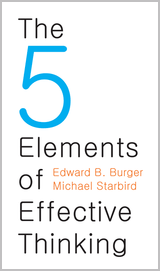 Every university administrator understands the importance of setting goals for your school and developing a plan to achieve those goals. Most accreditation standards require developing a strategic plan that provides a roadmap for mission achievement and that establishes the foundation for continuous improvement with an overarching goal of the plan to serve as an effective guide for decisions and practice.
Every university administrator understands the importance of setting goals for your school and developing a plan to achieve those goals. Most accreditation standards require developing a strategic plan that provides a roadmap for mission achievement and that establishes the foundation for continuous improvement with an overarching goal of the plan to serve as an effective guide for decisions and practice.
Over the past 15 years I have been directly involved in strategic planning as a professor, department head, associate dean and dean. In addition, I have been involved in developing strategic plans at the department, college and university level.
University-level and college-level strategic plans are often grand productions necessarily involving hundreds of stakeholders (faculty, staff, alumni, strategic partners, students, donors, administration). These strategic plans will often take 12 months or more to complete. Yet, in many cases these strategic plans focus more on planning and much less on strategy.
If your university, college or department is truly looking to achieve a bold vision it is imperative to develop a sound strategy and corresponding strategic plan. If you are willing to get outside of your comfort zone of conforming your strategic planning to traditional academic norms, I highly recommend that you read the following book: Scaling Up: How a Few Companies Make It … and Why the Rest Don’t by Verne Harnish, Gazelles Inc., Asburn, VA (2014).
In this book you will find some straight forward thinking on how to compete and grow in a competitive market. If you are unwilling to examine your university through the lens of business, this book is not for you. However, if you are willing to examine the business principles in this book and adapt them to your school’s situation, you will find this a very helpful book.
A great place to begin is the one-page strategic plan. I recommend that you go the the “Social Sector Growth Tools” page at the book’s website. Here you will find free strategic resources, including the One Page Strategic Plan, adapted for the non-profit sector.
In one page you will be asked to answer difficult questions about your core customers, the ‘product’ that you are selling them, your brand promises and your kept promise indicators (KPI’s). Only after answering these questions will you have a foundation necessary to build a strategic plan that enables a bold vision. Do you have the courage?
– from the pen of Dr. Percy Trappe








